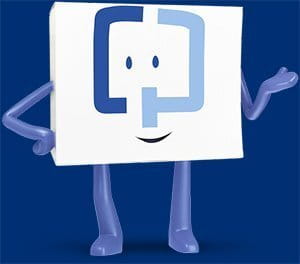Real Cologuard®
story: Debbie
“I want to be a vibrant old lady.”
At only 53, Debbie already has big plans for what that time of her life will look like: lots of travel, outdoor adventures, and hitting the road with her husband and two dogs in their RV. She already has a head start on that last one living full-time in the RV.
It’s a lifestyle that gives Debbie and her husband the freedom to bounce between the hustle of a bigger city in Florida to the serenity of north Georgia, all while she runs her own health coaching business.
As for the rest of her plans, she wants the things she does now to put her in the best possible position in the future. Things like focusing on her health and keeping up with preventive screenings. Some might think life in an RV would present a particular challenge, but not for Debbie.
“I prefer to do everything I can proactively and have tests come to me whenever that’s possible,” she explained.
So when she had a visit with her healthcare provider who gently reminded her of her need to screen for colon cancer and shared appropriate options, Cologuard was an obvious choice since Debbie was at average risk. And best of all, Debbie could get it done from anywhere.
“It was really easy, clean, and well-instructed,” she said. “Even in a tiny RV bathroom!”
Immediately after dropping her sample off with UPS®, she got on social media to share her experience with her followers. After all, her account does focus on health and wellness.
“I feel like I just won the day,” she said to the camera with a smile. “I completed my Cologuard test this morning.”
If completing her Cologuard test felt like a win, getting a negative result back was uneventful in a good way. She was happy she could check screening off her to-do list until she’s eligible to screen again in three years based on the American Cancer Society’s guidelines.1
For Debbie, being so public with her screening experience and encouraging others to get screened is no different than sharing healthy recipes or wellness tips with her followers. It’s all part of the same important category.
“The very best thing about social media is connecting with others and realizing you’re not alone,” she said. “In a place like social media that is full of messages about what self-care is, I want others to know that getting screened is the ultimate act of self-care.”
Or as she likes to call it: micro work. The daily habits and small ways we take care of ourselves now contribute to the bigger picture and to all those plans ahead.
“Screening goes along with nutrition, exercise, and all of the wonderful things people do for themselves,” she explained. “But I can’t be that vibrant old lady without being cognizant of my health.”
Every piece of her health.
This story reflects one individual’s experience. Not every person will have the same treatment, experience, outcome, or result. Cologuard is prescribed by your health care provider. Talk to your health care provider about available screening options and whether Cologuard may be right for you. There are potential risks associated with the Cologuard test and it may not be appropriate for all patients. For more information about the risks, talk to your health care provider or visit Cologuard.com/risk-information for more information.
References
1. Wolf AMD, Fontham ETH, Church TR, et al. Colorectal cancer screening for average-risk adults: 2018 guidelines update from the American Cancer Society. CA Cancer J Clin. 2018;68(4):250-281.
Cologuard is intended to screen adults 45 years of age and older who are at average risk for colorectal cancer by detecting certain DNA markers and blood in the stool. Do not use if you have had adenomas, have inflammatory bowel disease and certain hereditary syndromes, or a personal or family history of colorectal cancer. Cologuard is not a replacement for colonoscopy in high risk patients. Cologuard performance in adults ages 45-49 is estimated based on a large clinical study of patients 50 and older. Cologuard performance in repeat testing has not been evaluated.
The Cologuard test result should be interpreted with caution. A positive test result does not confirm the presence of cancer. Patients with a positive test result should be referred for colonoscopy. A negative test result does not confirm the absence of cancer. Patients with a negative test result should discuss with their doctor when they need to be tested again. False positives and false negative results can occur. In a clinical study, 13% of people without cancer received a positive result (false positive) and 8% of people with cancer received a negative result (false negative). Rx only.

